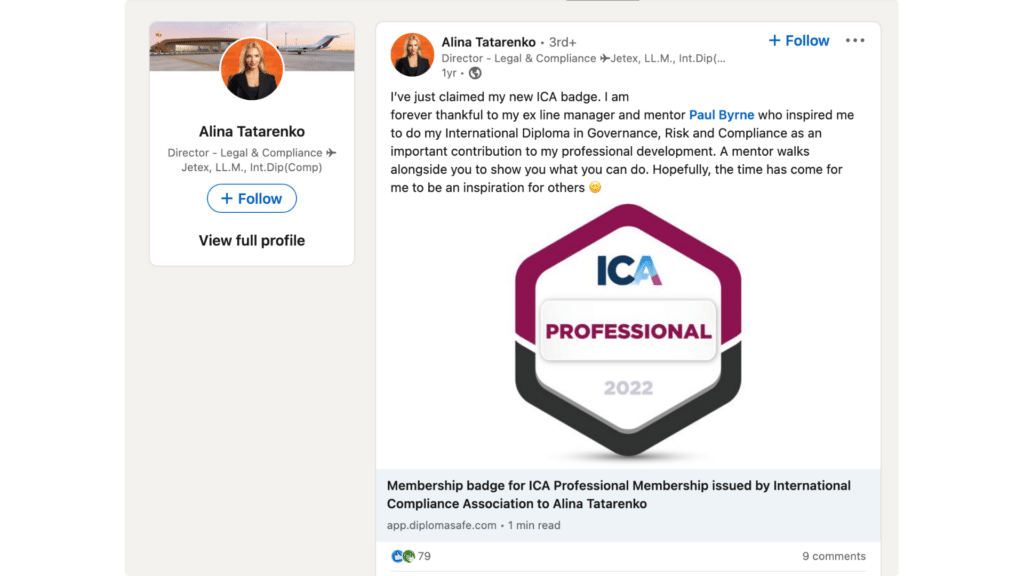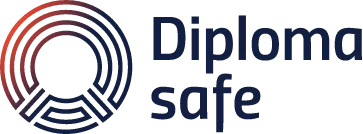Adding credentials to your resume will make your application stand out when looking for a job or planning a career change. Credentials connect professionals to credible organisations and provide a verifiable way to ensure employees have the proper knowledge to perform a job.
But what exactly can be considered a credential?
Credentials are any certificate, diploma or licence you may have received throughout your career. They indicate your abilities to perform specific tasks, are proof of your academic achievements or certify your authority when training others, for example. They are issued by an organisation with the competence to attest to your qualifications.
For certain jobs, presenting the correct credentials is more than ideal; they might be indispensable.
This article will explain the most common types of credentials and indicate how and when you should add them to your resume, LinkedIn profile or job application.
Credentials you should include in your resume
Since credentials can cover an array of documents and certificates – including driving licenses, for example – it is essential to assess which information you need to add to your resume and what is unnecessary.
Essentially, there are four types of credentials you should always list on your CV. They will provide recruiters with a better understanding of your academic achievements, training and abilities.
However, before you add every course certificate you ever took or every document you ever received, why not consider your professional goals first? Being aware of how you want to grow is the first step in deciding what you should portray. Your resume is nothing more than an advertisement for yourself, so make sure you know what you want to sell.
From that, you can decide which information you give peers and recruiters the tools to paint a picture of who you are.
Diplomas
Degrees or diplomas are the most common type of credential you’ll find in resumes. In many cases, a university degree is required to take on a particular job. This is undoubtedly the case for physicians, engineers and lawyers, but it is not uncommon for recruiters to indicate what kind of diploma they are looking for.
Including your diploma as one of your credentials in your resume will indicate your interests and background, an excellent introduction to your professional aspirations.
If you have continued your higher education with a post-graduate degree or a PhD, make sure you include them in your CV. This sort of credential is valued in the job market, showing you have the discipline and dedication most companies will be looking for.
Licences
Licences are more specific than a diploma but equally or even more critical. Some careers require professionals to own a license to perform particular tasks, especially if these tasks present risks to you or others.
Licences are the perfect example of a credential that should be part of a resume with a very specific goal. For instance, there is no need to list your driver’s license in your resume if you are not applying for a position as a driver. If you are looking for a career change, you don’t necessarily have to list the licences that helped you perform at your old job.
By the same token, if you are planning to completely transform your professional future, getting the necessary licences to perform that job – even before you get it – is essential. Take the courses and prepare yourself for what you want.
Certificates
Certificates are different from diplomas and degrees. While diplomas are received after a university course, certificates are achieved following a shorter course or training.
You can get certificates for participating in a summit, for studying a different language or for taking a free course on LinkedIn, for example. And they are all valuable. They will reveal your interest and are a great way of demonstrating your constant pursuit of professional development.
Just like with licences, it is recommended that you acquire the proper certificates before changing your career. Having the correct credentials on your resume will help you advance professionally.
Certifications
Certifications are different from certificates and licences. They demonstrate someone’s training and dedication to a more specific subject than a course. People might have certifications attesting to their ability to work with a software or tool, for example, an ability that will not necessarily be transferable to another area of expertise.
These certifications might appear in your resume or LinkedIn profile as a badge.
What are digital credentials?
Most often used on social media pages like LinkedIn, badges are an example of a digital credential. They can also be a representation of an association with a company or organisation that will attest to your expertise.
In an increasingly digital world, presenting certificates in a digital format can be easier, cheaper, and better for the environment. Companies like Diplomasafe ensure credentials issued by educational businesses and organisations are verifiable and credible, as demonstrated by our dashboard that helps manage and showcase these digital credentials effectively.
One of the benefits of having digital credentials is how easy it is to share them on multiple mediums. Badges and seals can quickly become a conversation starter, sending peers and recruiters straight to the source of your achievement.
If listing your credentials on your resume is extremely important, having them in the digital format displayed on social media pages or professional websites is just as relevant.
Digital credentials also provide recruiters and future employers with a trusted source of information about your certifications. They are easier to verify and create an increased sense of transparency in the hiring process.

Why are resume credentials so important?
As we’ve discussed, adding credentials to your resume improves your chances of getting noticed by recruiters. It is also an essential step towards a career change, especially if you are committed to improvement and seek the proper qualifications.
Resumes are, after all, a long list of credentials. Your CV should reflect what you have done professionally, but also everything you have achieved academically and intellectually. They are an opportunity for you to showcase your expertise. Therefore, you should boast about your credentials.
More importantly, having credentials – and relevant credentials – will help you get the proper attention, improve your chances of making more money, and develop your professional goals.
Digital credentials can be even more beneficial to your career goals, as they will connect you to credible organisations in a way that is easy to verify and confirm.
Conclusion
Credentials are essential pieces of information to add to any resume. They can indicate a variety of goals, interests and purposes, and they are relevant for employees, recruiters and companies.
Adding your credentials to your resume will improve your chances of getting hired and reveal your commitment to your craft. Having digital credentials available on your social media pages will also give recruiters an easy way to verify that you have the knowledge and expertise they are looking for.
It is a must to present credible credentials from institutions that are well-regarded in their area of expertise. In a digital environment, digital credentials are also a source of positive attention for professionals and for the businesses that issue them.
FAQ
Some examples of credentials include academic degrees (e.g., Bachelor’s, Master’s, Ph.D.), professional certifications, badges, certificates of completion, licenses and memberships in professional organizations. These credentials signify a person’s qualifications, skills, or authority in a particular field.
A CV (Curriculum Vitae) is not a credential itself; rather, it is a document that lists a person’s credentials. It details an individual’s educational background, work experience, skills, and qualifications. A CV is used to present the credentials a person has earned to potential employers or institutions.
Credential verification is the process of confirming the authenticity and validity of a person’s qualifications or certifications. This can involve checking the details of a degree, certification, or license against a database or issuing authority to ensure it is legitimate and has not been tampered with.
Getting your credentials means obtaining the necessary qualifications or certifications to demonstrate your competence or eligibility in a specific field. This could involve completing a degree program, passing a certification exam, or fulfilling the requirements for a professional license.
